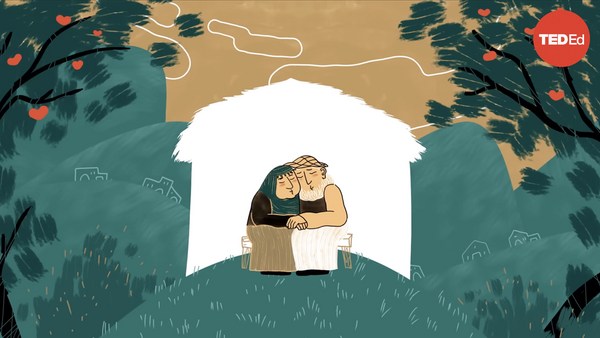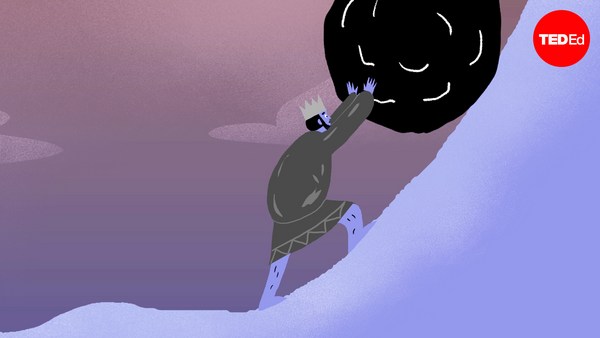When Cadmus walked the earth, just a few generations separated him from his divine ancestors. From atop Mount Olympus, they scrutinized and meddled with mortals like himself. Cadmus was a skilled warrior and heir to the Phoenician throne. But he wouldn't stay in the gods' favor for long.
First, Zeus coveted Cadmus' sister, Europa. So, he snuck into the palace garden in the form of a bull and stole her away. Their father tasked Cadmus and his men with the impossible duty of bringing Europa back. Cadmus journeyed to the sacred Oracle of Delphi to plead for help, where he was told to find and follow a sacred, wild cow. At the spot where the cow rested, he was to found a new city.
Cadmus and his men did as the oracle said, then ventured into the nearby forest for supplies. But a giant serpent soon appeared. It choked some of Cadmus' men and blasted others with venom. Cadmus leapt into action, hurled his javelin, and pinned the snake to a tree. Without knowing it, he had just slain Ares', the god of war's, precious serpent— and sealed tragedy into his own fate along with it. Suddenly, a disembodied voice boomed: "You too shall be a serpent to be gazed on."
Taking pity on the prince, the goddess Athena instructed Cadmus to till the earth using the serpent's teeth. As he nestled its fangs into the soil, a band of warriors sprouted from the ground. Together, they built the magnificent city of Thebes. And eventually, Cadmus fell in love with Harmonia, daughter of Ares and Aphrodite, and the two married. As years passed, and his city and family grew, hope that all strife might be forgotten between Cadmus and the gods glimmered briefly. But, soon enough, his family's luck began souring once more. Tragedy struck when Cadmus' grandson, Actaeon, was tracking a stag in the forest with his hunting hounds. The young man unwittingly infringed on the sacred grove of Artemis, goddess of the hunt, as she was bathing. Artemis punished Actaeon, transforming him into a skittish stag. And in this form Actaeon's own hounds could no longer distinguish him from the object of the hunt— and they went in for the kill.
Then, Zeus visited again— this time taking advantage of Semele, one of Cadmus' four daughters. When Zeus' wife Hera learned that he'd been unfaithful yet again and that Semele was pregnant, she tricked Zeus into revealing himself to Semele in his divine form. But even the feeblest of his thunderstorms was too much for a mortal to witness, and Semele perished.
Zeus managed to save their unborn child, who grew into Dionysus, god of wine. His wild, revelrous rituals drew devoted followers. But they eventually got out of hand. On one occasion, two of Cadmus' four daughters, Agave and Autonoë— Dionysus' own aunts— had a hallucinatory fit and killed Agave's own son, believing he was a lion.
Next, Hera targeted the family again. Alongside the Furies, the goddesses of vengeance, she cursed Cadmus' fourth daughter, Ino, with an intolerable madness that drove her into the sea.
Besieged by bad luck and overcome with grief, Cadmus and Harmonia wandered the wilderness. They considered the many tragic turns their lives had taken— which Cadmus traced back to the time he killed the serpent. Realizing that the animal could have been sacred and that his act might have incited the unabating wrath of the gods, Cadmus prayed to recompense his error. Suddenly, he felt his body change and he embraced Harmonia. The two melted to the ground and shed their human skins, until finally, two snakes were left coiled in the field. Cadmus' debt was at last repaid— to the snake he slayed in a desperate moment, and to the gods, who guarded their grudges and dispensed of their punishments liberally.


